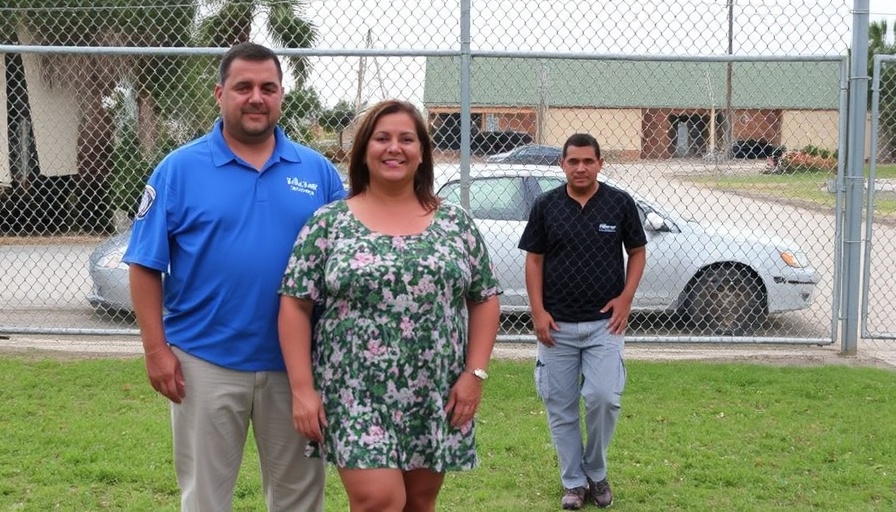
Understanding Florida's Jail-to-Deportation Pipeline
The deeply troubling saga of Oscar Romero Santos highlights a systematic issue within Florida's judicial system: the jail-to-deportation pipeline. This process serves as a mechanism that not only fuels mass deportations but also tears families apart over seemingly minor offenses. In Santos’s case, a routine traffic stop escalated to inevitable incarceration by Immigration and Customs Enforcement (ICE), following a straightforward encounter with law enforcement.
The Domino Effect of Minor Arrests
One crucial insight from Santos's experience is that an arrest for a minor infraction can result in far-reaching implications. His $650 bond for misdemeanor charges quickly turned into a deportation order, catalyzed by ICE's cooperation with local law enforcement. This disproportionate response to petty crimes demonstrates how the system disproportionately targets individuals, stripping them of legal due process before they ever step foot in a courtroom.
The Human Cost of Deportation
Families like that of Santos endure emotional and financial upheaval when a loved one is suddenly deported. The repercussions extend beyond the individual, affecting employment, childcare, and household stability. Local businesses reliant on immigrant labor feel the financial strain alongside families who are left to grapple with the sudden absence of a breadwinner.
Legal Implications and Unresolved Cases
A critical point to grasp is that many individuals, like Santos, face deportation without ever receiving a trial. The local judicial system becomes bottlenecked, as open cases turn into bench warrants when defendants cannot appear in court due to their immigration detention. This bureaucratic chaos leaves many struggling to resolve their legal predicaments, leading to increased confusion and mistrust in the system.
Community Perspectives on the Situation
Residents across Bradenton are increasingly voicing their concerns regarding this ongoing issue. Local activists and advocates stress the need for reform in how local law enforcement interacts with ICE. For many, the aim is not just to protect undocumented immigrants but to foster a more humane and just judicial process that respects the rights of individuals irrespective of minor infractions.
Call to Action: Advocate for Change
The Bradenton case serves as a wake-up call to community members and stakeholders. As the conversation surrounding immigration reform continues to evolve, residents are encouraged to advocate for change. This could mean supporting local initiatives aimed at reforming how law enforcement interacts with immigration authorities or promoting community awareness programs to inform individuals about their rights. The actions taken today will pave the way for a more just tomorrow.
 Add Row
Add Row  Add
Add 


Write A Comment